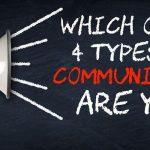What emotional obsession is controlling your life?What Is Your Dark Emotional Obsession?
Quiz: What Is my Dark Emotional Obsession?
Are you curious to know which 2018 lyric sums up your love life? Take this quiz and find out!
Love is a complex emotion that can be difficult to put into words. Luckily, many talented musicians have written lyrics that perfectly capture the ups and downs of romantic relationships. Whether you're in a committed partnership or navigating the dating scene, there's a lyric out there that speaks to your experience.
This quiz will ask you a series of questions about your love life, personality, and preferences. Based on your answers, we'll match you with a 2018 lyric that sums up your current romantic situation. Will it be a heartwarming ballad or a sassy breakup anthem? There's only one way to find out!
So, grab a pen and paper, get comfortable, and let's get started. Remember, there are no right or wrong answers - just be honest and have fun!





